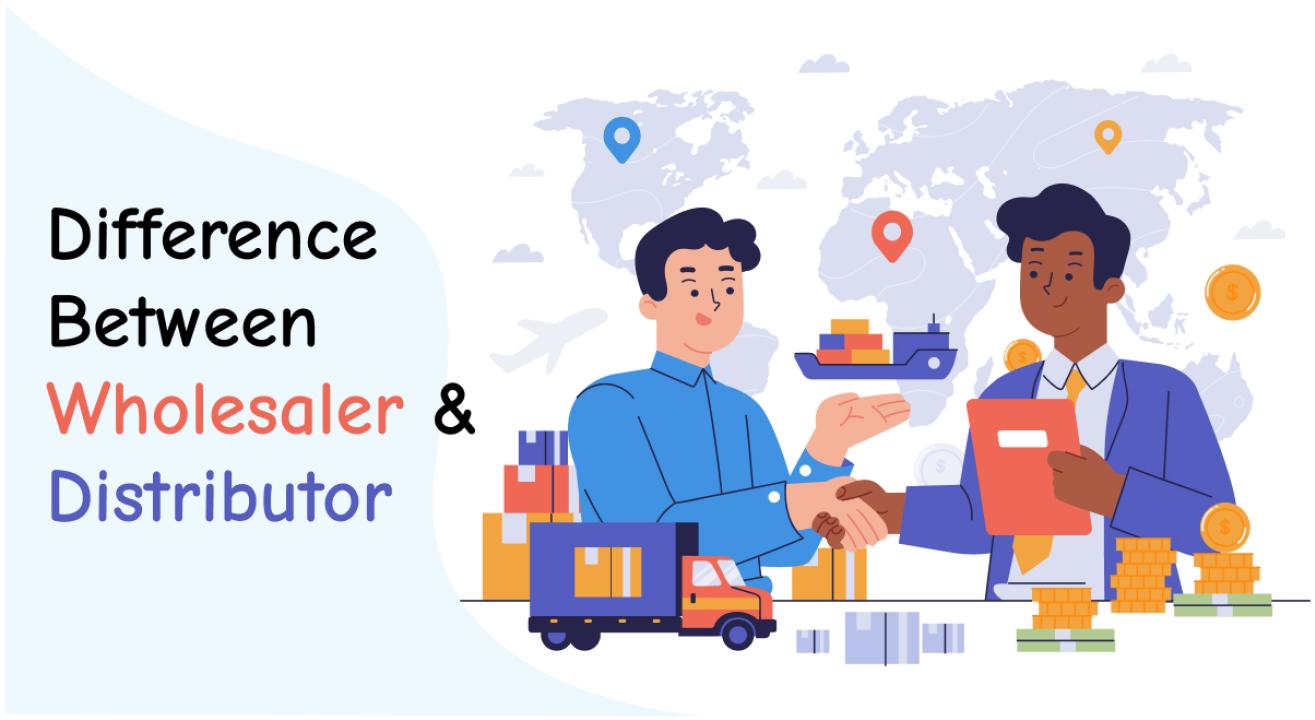In supply chain management and distribution,
wholesale and distributor are two of the frequently used terms. Not just
regular consumers; even business professionals often mistake these two terms as
the same. If you are one of them, your doubts will be cleared here. In this
post, you will know the difference between a wholesaler and a distributor.
Here, we highlight their definitions, roles, and contributions. Let’s get
started!
Introduction to a Wholesaler
A wholesaler is an intermediary entity
in the supply chain that purchases goods in bulk quantities from manufacturers.
Later, they sell them to small retailers, online shops, supermarkets, and other
organizations. Wholesalers are the middlemen between manufacturing companies
and retailers. Their support helps small and large shop owners to get products
in bulk quantities. They offer discounts on their products when you buy their
products in bulk.
Introduction to a Distributor
A distributor is also an intermediary
entity in the supply chain. They act as a middleman by distributing goods
between manufacturers and wholesalers or retailers. Distributors simply
purchase products from the manufacturers and distribute them to small and large
wholesalers in bulk quantities. They facilitate the movement of goods from the
manufacturer to the consumers. The important role of FMCG
distributors is to help businesses manage their logistics, warehousing,
and delivery processes.
Wholesaler vs. Distributor Example
To understand the difference between
wholesaler and distributor with the help of an example, let us take a
simple intuitive example:
Imagine there is an FMCG company that
manufactures 1000 chocolates. Now talking about a wholesaler, it would directly
buy these chocolates in bulk from the company and sell them to smaller
retailers and shops. These retailers then sell the products to their ultimate
consumers. With chocolate
distributors, they would also buy the chocolates in bulk but supply
them to different wholesalers or retailers. Overall, wholesalers sell their multiple
brand chocolates like Twix,
Milka, Mars to
retailer store and shops. While chocolate distributors supply products to
wholesalers and retailers.
Difference Between a Wholesaler and a
Distributor
After talking about the basic essence of both
these terms, distributor and wholesaler, it is time to compare their major functions
to understand the difference between wholesaler and distributor:
Operations
Wholesalers mainly focus on buying and selling
goods in bulk. They ensure maintaining stock for retailers to sustain market
efficiency. FMCG wholesalers are involved in helping retailers get their
range of products at more affordable prices.
Distributors aim to distribute your products
through physical movement and delivery. They handle many operations, such as
logistics, warehousing, and supply chain management. They ensure that
wholesalers and retailers can order their wholesale products and receive them
with the help of fast and efficient operations.
Agreements
Wholesalers may not have any agreement with
the FMCG
company. They can buy their products in bulk from FMCG distributors or
other sources. Then, they sell their products to retailers, supermarkets, or
smaller wholesalers. They do not have exclusive rights or territory
restrictions. As a small or large retailer, you can connect with them to get
flexibility in pricing and get stock from multiple brands.
Distributors have legal agreements with FMCG
companies. You can find products of specific brands near them. They are also
known for maintaining stock levels and following company guidelines. They have
exclusive rights to distribute certain brands in specific areas, ensuring
controlled pricing and brand representation.
Exclusivity
Wholesalers may not have exclusive deals with
FMCG companies. Once they purchase their bulk products from the companies, they
work independently. Even the companies may not track their process. Wholesalers
don’t focus on the marketing of the brands. They decide the rates of products
independently and resell them to small and large retailers.
Distributors may have exclusivity and may work
closely with manufacturers. They can partner with more than one company from
different sectors. Their support allows small and large wholesalers to receive
fresh and premium quality products directly from manufacturers. They also focus
on branding the companies and increasing the brand’s visibility.
Management
Wholesalers do not have management of
manufacturing companies. They operate independently and provide their wholesale
products to smaller retailers. Wholesalers have minimal supervision from the
company because they work autonomously. They handle their own pricing and stock
management. Their goal is to get more profits from consumers, so they sell
their products to them.
Distributors have exclusive management with
manufacturing companies. They can go through selection, training, reporting,
targeting, and incentive processes. They may need to share their regular
reporting and performance tracking with the manufacturing company. That
provides reassurance that they are meeting company objectives.
Bottom Line
Wholesalers and distributors both sound
similar. But these two are different, as we understand in this guide.
Wholesalers mainly sell and distribute their products to small and large
retailers. On the other hand, distributors also provide their products to wholesalers
and other small and large retailers. Both wholesalers and distributors play an
important role in distribution and supply chain management. Today, their role
has an enormous impact on various industries. They ensure a continuous supply
of these products in the market and allow small and large retailers to maintain
their products on the front line.




